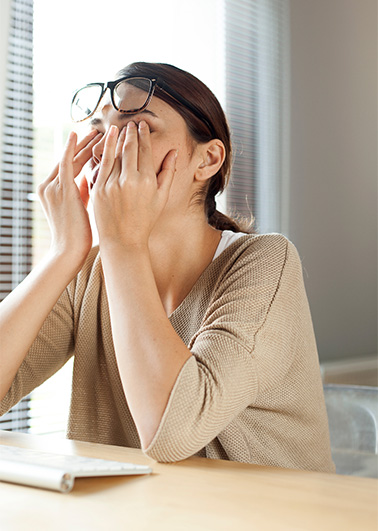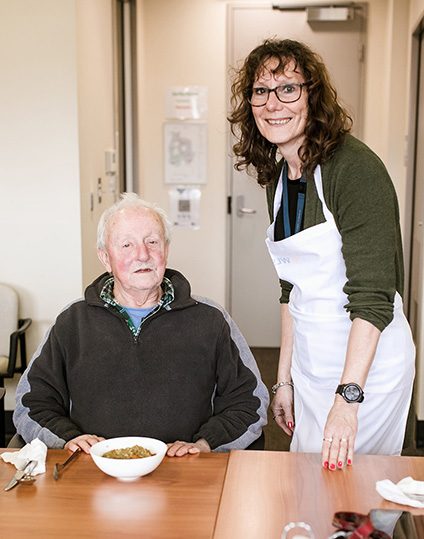Why am I more tired when daylight savings ends?

When daylight saving ends, our days suddenly become shorter, the cooler weather kicks in, and we’re not spending as much time outside.
This means we’re not getting as much sunlight as we normally would in summer and spring. And guess what? A lack of sunlight can affect our mood, appetite and body clock.
The kind people at Beyond Blue tell us sunlight is important, because it helps us produce the hormones, melatonin and seratonin, which affect our sleep quality and mood. Our circadian rhythm can also go out of sync, disrupting our sleep cycles.
Some people who experience poor sleep and depression during autumn and winter may have Seasonal Affective Disorder, a genuine condition that’s – you guessed it – seasonal.
For most of us, the less sleep we have, the more tired we feel, and the moodier or more emotional we become. Thankfully, there are some simple steps we can take to get a better quality sleep, no matter the time of year.
How can I get enough sleep so I’m not so tired?
Sleep hygiene encompasses the many things we can do to help us get a good night’s sleep. As with most things in life, sleep hygiene takes practice, and we shouldn’t expect to perfect it straight away.
Here’s what you can do:
- Set a personalised routine before bed to help your body know it’s time to get ready for sleep. This can involve a bath, caffeine-free drink, reading a book, gentle breathing exercises, or anything that helps relax your body and begin the ‘wind down’ process.
- Go to bed at the same time each night, and wake up at the same time each day.
- Exercise regularly everyday – this can help your body sleep (just don’t exercise right before bed).
- Work towards a healthy and balanced diet. Sometimes high sugar foods or digestive concerns can keep us awake. A small, easy-to-digest snack can be helpful before bed, but don’t polish off a massive meal before trying to sleep.
- Create the right sleep environment. Some people find it helpful to free their bedroom from clutter, making it a place of relaxation and sleep.
Try to avoid:
- Caffeine, alcohol and nicotine at least four to six hours before bedtime. These substances tend to act as stimulants and can really interfere with our ability to fall asleep.
- Screen time right before bed, so no televisions or phone time in bed. Keeping the bedroom an area for just sleeping can support a good quality sleep routine.
How I can care for myself even when I’m feeling tired?
A little kindness and compassion towards yourself can go a long way, especially when you’re already feeling tired, and understandably, a lot more emotional. It’s important to recognise the impacts changing seasons (including less sunlight) can have on our sleeping patterns and mood.
Try a bit of mindfulness each day, either before bedtime or when you wake up, or both! Doing some gentle breathing exercises or spending five minutes focusing on the sounds around you can take your focus away from a bad night’s sleep or how tired you are.
If sleep is tricky to come by, try not to fixate on the clock or fret over being awake. You can hop out of bed and read a book in a quiet room, and try to go to bed again in 20 minutes’ time or when you feel sleepy. Or, you can simply lay in bed knowing your body is resting and you will sleep when you are ready (without forcing it).
If you’re struggling to sleep, or you’re just feeling tired and down most of the time, a professional may be able to help. Speak to your GP or a counsellor to find a solution that works for you.




